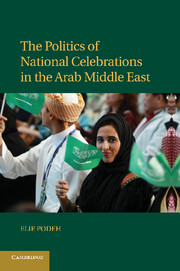6 - Lebanon
Upholding the Integrity of the State
Published online by Cambridge University Press: 05 July 2011
Summary
The French high Commissioner in Syria and Lebanon, General Henri Gouraud, announced the formation of Greater Lebanon (Grand Liban) on 1 September 1920. This, of course, was after France was given a mandate over Syria and Lebanon in April 1920, at the San Remo Conference. The new state was a result of the convergence of both French and Maronite interests. It comprised the district of Mount Lebanon, to which was now added Tripoli and Akkar in the north, the Biqa‘ in the east, Jabal ‘Amel and the Tyre and Sidon coastland in the south and the city of Beirut in the west.
In contrast to Iraq, Jordan and some other Arab states, however, Lebanon was not a complete invention. The district (mutasarifiyya) of Mount Lebanon was founded in 1860–1861, with French-led European facilitation, after a long civil war between the Maronite Christians and the Druze. It was established as an autonomous district within the Ottoman Empire, under a non-Lebanese Catholic–Ottoman head. This arrangement – a result of the particular political and social conditions existing in Mount Lebanon – endured until the collapse of the Ottoman Empire. Peaceful relations between the various confessional groups in the region (particularly the Christian Maronites and the Druze) characterized this relatively long period of time (1861–1914), aptly termed by Akarli the “long peace.” It was here that the seeds were sown for the creation of a Lebanese political entity, which in itself spawned a loose attachment among the local inhabitants to a Lebanese territory.
- Type
- Chapter
- Information
- The Politics of National Celebrations in the Arab Middle East , pp. 207 - 254Publisher: Cambridge University PressPrint publication year: 2011



